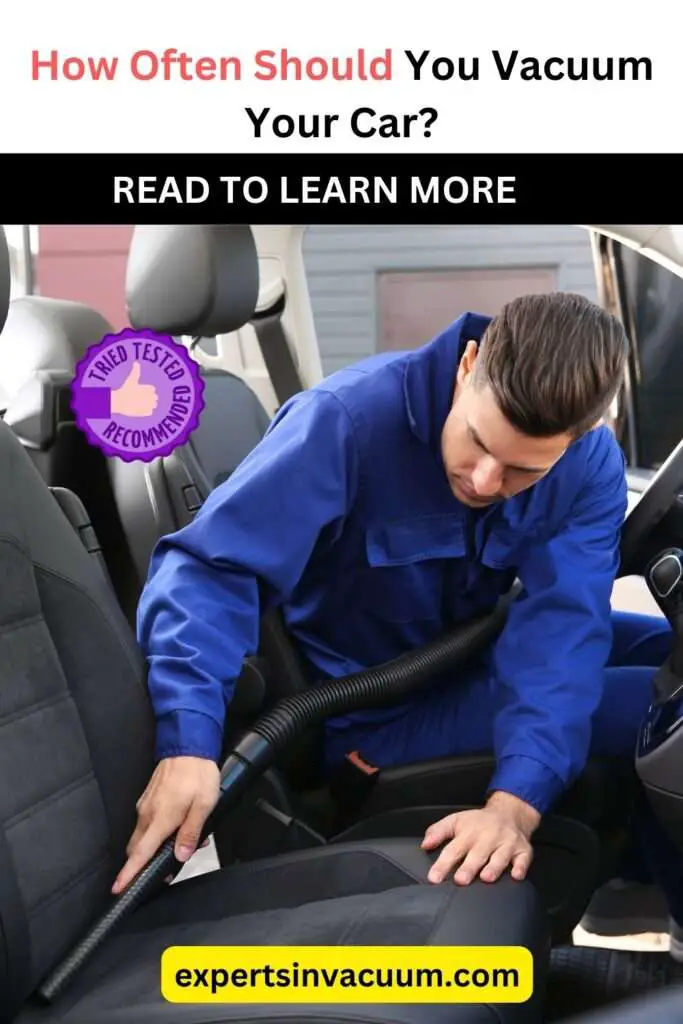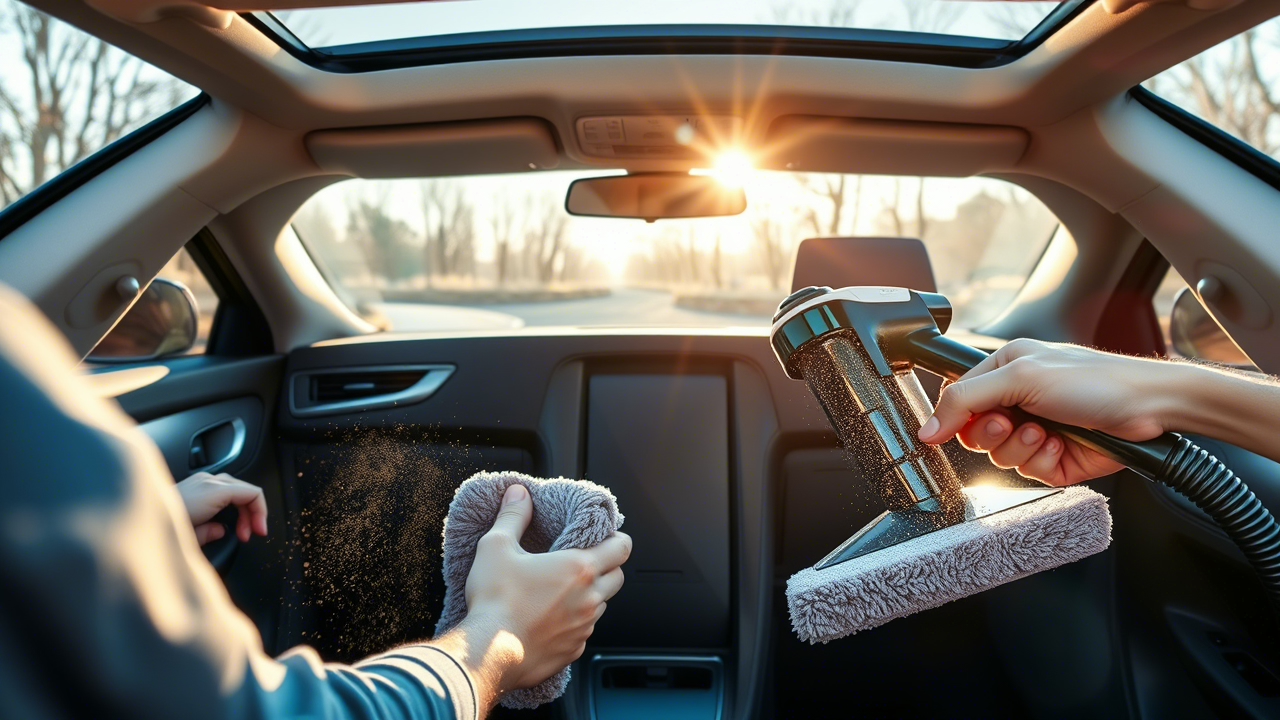Keep your car fresh and clean with regular vacuuming.
A consistent vacuuming routine not only improves air quality but also protects your car’s interior from wear and allergens.
Here are practical tips every car owner should follow to make cleaning easier and more effective.
11 Car Vacuuming Tips: How Often & Why It Matters
1. Vacuum Once a Week for Daily Drivers
If you drive your car daily, aim to vacuum it once a week.
Dust, crumbs, hair, and debris build up quickly, especially if you have kids or pets.
Regular vacuuming prevents dirt from embedding into the fabric or mats, which can cause long-term stains and odors.
2. Focus on Floor Mats First
Start by removing and vacuuming the floor mats.
Since they trap most of the dirt from shoes, mats often hold the highest amount of debris.
Shake them out before vacuuming and clean both sides thoroughly to prevent dirt from transferring back onto your car floor.
3. Use a Nozzle for Tight Spaces
Crevice tools are essential when cleaning narrow areas between the seats, around seat rails, and under pedals.
These tight spots often trap food particles and dust.
A nozzle attachment ensures you’re reaching areas that are too small for standard vacuum heads.
4. Don’t Ignore the Trunk
The trunk collects dust, gravel, and sometimes food wrappers or groceries that leave behind dirt.
Vacuum it at least once a month or more often if you use your trunk frequently.
Keeping this space clean helps reduce musty odors and keeps the entire vehicle tidy.
5. Vacuum Pet Hair With a Rubber Brush
Pet hair can be stubborn, especially on fabric seats.
A rubber brush loosens embedded fur, making it easier to vacuum up.
Combine it with a handheld vacuum or brush attachment for the best results.
Aim to vacuum pet-friendly cars twice a week.
6. Clean the Seats Thoroughly
Vacuum fabric or leather seats every week to remove dust, hair, and crumbs.
For fabric, use an upholstery brush to lift dirt.
For leather, use a soft brush head to avoid scratches.
Regular cleaning preserves the look and feel of your seats over time.
7. Go Over the Dashboard Gently
While not a traditional vacuuming spot, the dashboard gathers dust and pollen.
Use a soft brush attachment to remove loose particles without scratching the surface.
Keep vents clear to improve air circulation and reduce allergens floating around your car’s interior.
8. Vacuum After Outdoor Trips
If you’ve been to the beach, on a hike, or camping, vacuum your car as soon as you return.
Sand, mud, and leaves can quickly get ground into the carpet and mats.
A quick vacuum session prevents permanent stains and keeps your car feeling fresh.
9. Use a Portable Vacuum for Spot Cleaning
A cordless, handheld vacuum is perfect for quick cleanups after drive-thru meals or muddy shoes.
Keep it in the trunk for easy access.
Spot cleaning saves time and reduces the need for long, weekly sessions—especially useful if you have kids.
10. Pay Attention to Under the Seats
Food, coins, wrappers, and dirt often slide under the seats unnoticed.
Tilt and move the seats when possible to vacuum beneath them thoroughly.
Keeping this area clean improves air quality and prevents unpleasant smells over time.
11. Schedule a Deep Clean Monthly
In addition to your weekly routine, schedule a deep vacuuming session once a month.
Remove mats, seat covers, and vacuum every crevice with detail.
Deep cleaning extends your vehicle’s life and adds to its resale value.
It also helps you spot issues like spills or stains early.
FAQs
1. How often should I vacuum if I rarely use my car?
Vacuum at least once a month to remove settled dust and prevent odors, even if you drive occasionally.
2. What’s the best vacuum type for cars?
A compact, high-suction vacuum with attachments like crevice tools and brushes is ideal for reaching all areas.
3. Should I vacuum before or after washing the car?
Vacuum first. It clears the interior and helps you better assess any stains that may need deeper cleaning.
The Wind Up
Consistent car vacuuming keeps your vehicle clean, comfortable, and allergen-free.
From weekly upkeep to monthly deep cleans, each step adds value to your driving experience.
For more helpful car care guides, be sure to check out related posts.

